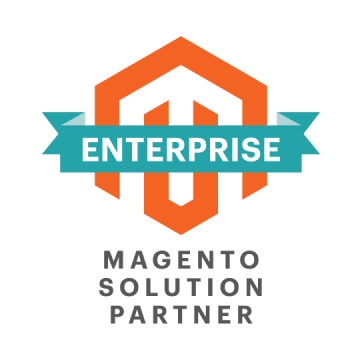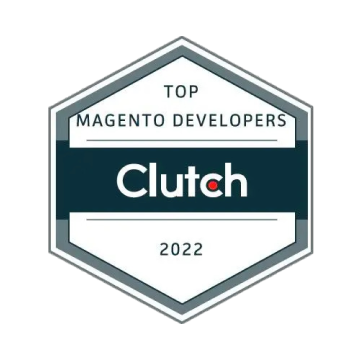Rapid AI Proof of Concept
See if AI delivers value before you commit. In just six weeks, we turn one high-value use case into a working prototype connected to your live data. You’ll know how it fits your systems, what ROI it drives, and where compliance or integration risks lie — all before scaling.
Why Run an AI PoC
Prove Business Impact
A PoC quantifies impact against business KPIs — cycle time, retention, conversion, error rates, or cost savings — using real data.The result is a compact, defensible ROI model that gives decision-makers the clarity to make informed investment decisions.
Check Data & Governance Early
We assess whether your data is complete, usable, and secure. Gaps in coverage, quality, or access are identified upfront, and compliance requirements are built into the process from the start.
De-risk Integrations
A PoC shows how AI connects to the tools you already use — CRM, ERP, or data warehouse — without heavy rework. By testing integrations early, you avoid costly surprises and see exactly how adoption would look in practice.
Validate Model Approach & Accuracy
A PoC proves whether AI can outperform your current process and do it safely. Accuracy, bias, and edge cases are surfaced early, so leadership knows exactly where AI adds value and where risks remain.
Control Budget & Timeline
The PoC is fixed in scope and capped at six weeks, so costs stay predictable. Work ends with clear exit criteria — a working prototype, measured KPIs, and a roadmap to production.
Confirm Compliance Path
Regulation shapes design choices. A PoC documents lawful basis, data flows, and access controls; runs a light DPIA/PIA when personal data is processed; and outlines the guardrails and policy updates needed for production under HIPAA, SOX/FINRA, and GDPR/CCPA.

Industries We Serve
- Retail & eCommerce
- Healthcare & Life Sciences
- Finance & Banking
- Logistics & Supply Chain
- Manufacturing
- Government & Public Sector
- Startups
- SaaS
- Telecommunications
- Education
Business Outcomes & Success Metrics
An AI PoC isn’t about testing algorithms in a vacuum. It’s about proving business impact. A PoC should gives you a clear baseline, a compact scorecard, and the confidence to move forward with decisions backed by data.
Want an outcome-first scorecard mapped to your use case?
Why Choose WiserBrand
The prototype isn’t just a demo — it fits your stack, delivers measurable KPIs, and gives leadership a clear decision path.
1
10 Years in the US Market
We’ve shipped AI work across finance, healthcare, retail, and B2B services, so procurement steps, security reviews, and US-time collaboration are standard.
2
GenAI + Classical ML, Applied
RAG and prompt/adapter tuning for language tasks; forecasting, ranking, and classification for structured data. We select the simplest approach that meets the target metric and document trade-offs.
3
Consulting and Engineering, One Team
Discovery, KPI modeling, and solution design sit next to data pipelines, training, and UI/API integration. No throw-over-the-wall handoffs — the people who shape the roadmap write the code and present the demo.
4
End-to-End Ownership
Use-case selection, prototype, testing, and production planning come in one engagement. You get security artifacts, governance notes, and runbooks alongside code, so the pilot starts without rework.
5
Rapid Delivery, Predictable Scope
A PoC boxed to six weeks, one use case, one primary data source, and one delivery surface. Weekly demos keep stakeholders aligned and give room to adjust as facts emerge.
6
Measured Business Impact
We connect model performance to operational KPIs and finance outcomes through a compact scorecard that shows lift, confidence, and adoption sensitivity. Decision-makers see exactly what moves and why.
Our Experts Team Up With Major Players
Partnering with forward-thinking companies, we deliver digital solutions that empower businesses to reach new heights.
Our Workflow
A six-week path from idea to decision, in five focused steps.
Alignment & Scope Lock
Stakeholders align on one high-value use case, target KPIs, decision criteria, and guardrails. Data sources, access, and a written baseline are confirmed, along with risks and a weekly demo cadence.
Outputs: 1-page charter, KPI definitions, access plan, baseline, risk register.
Data & Integration Sprint
We stand up thin connectors to CRM/ERP, warehouse, and apps; profile data quality; handle PHI/PII masking; and validate quotas, latency, and auth. A lightweight delivery surface (API or simple UI) is selected to test end-to-end flow.
Outputs: Working connectors, data profiles, sample dataset, security notes (DPIA/PIA as needed), integration sketch.
Experiment & Prototype
A rules or analyst baseline is established. Classic ML and GenAI options are compared through fast iterations on features, prompts, and evaluation sets. Guardrails cover content filtering, rate limits, auditability, and fallback paths.
Outputs: Clickable or API prototype, model card, test plan, trace logs.
Validate Value & Operability
Controlled trials measure KPI lift against the baseline, capture user feedback, and expose bias or edge cases. Cost per decision, latency, and drift risk are recorded, along with support expectations and failure modes.
Outputs: KPI readout with confidence ranges, cost/latency profile, risk list with mitigations, ops checklist.
Go/No-Go & Roadmap
Decision criteria are applied. The team publishes a pilot scope, production architecture, budget and timeline, monitoring and retraining plan, and a change plan for process and training.
Outputs: Go/No-Go memo, 90-day pilot plan, production budget & timeline, RACI, next steps.
Client Success Stories
Explore how our services have helped businesses across industries solve complex challenges and achieve measurable results.
Frequently Asked Questions
A narrow, high-impact use case with clear KPIs, accessible data, and a single delivery surface (UI or API). Examples include triage, routing, forecasting, recommendations, document extraction, and AI-assisted drafting.
Six weeks end to end, scoped to one use case. Typical budget ranges from $30k to $75k, depending on data complexity and integration depth.
Yes—if the signal is present. We profile coverage and quality, use pragmatic feature engineering or RAG for text, and compare results to a rules or analyst baseline to expose lift honestly.
A working prototype (clickable or API), measured business KPIs with confidence ranges, an architecture and integration sketch, risks with mitigations, and a 90-day pilot and production plan with budget and timeline.
A PoC proves value and feasibility in a controlled setting. A pilot runs in a live workflow with a limited audience; an MVP is a production-grade slice with monitoring, SLAs, and a release cadence.




















